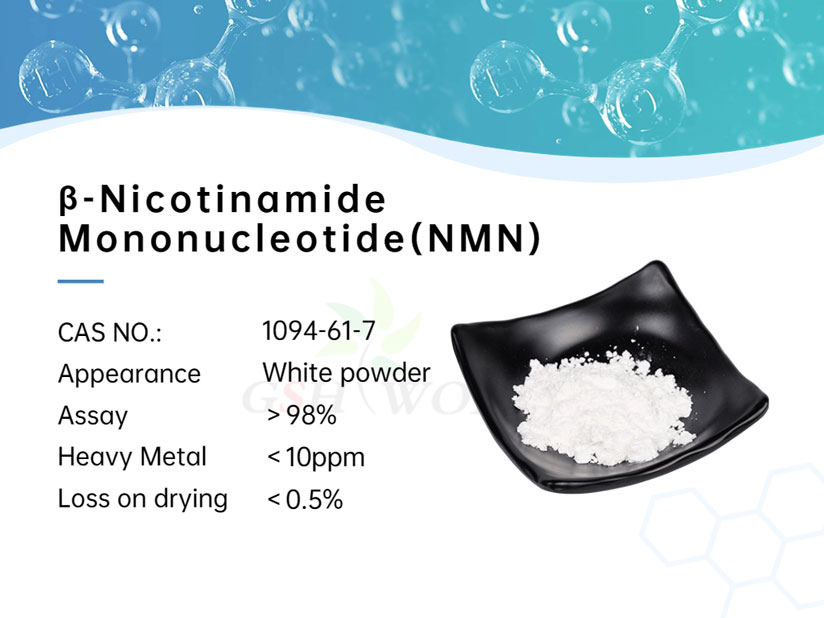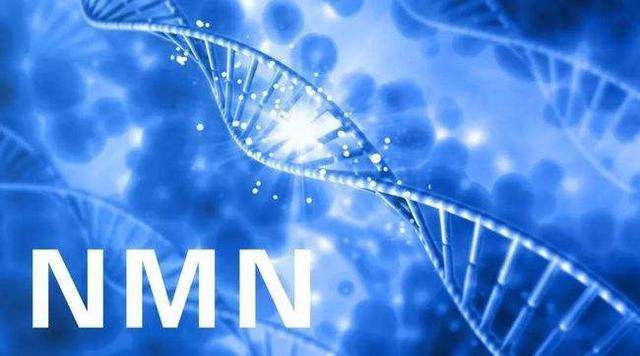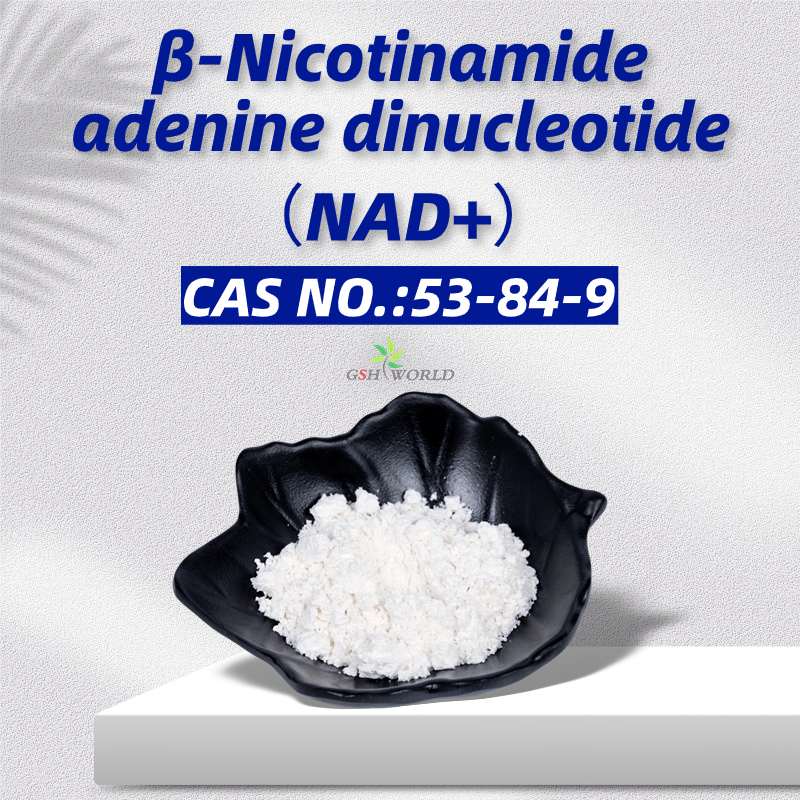Studies have shown that NMN has a positive effect on the global high incidence of the disease.
These include diabetes that afflicts many people, cardiovascular and cerebrovascular diseases that seriously threaten life and health, neurodegenerative diseases that lead to gradual decline in cognitive function, frequent epidemics of influenza and pneumonia, increasing prevalence of obesity, liver diseases that impair liver function, highly infectious tuberculosis, and complex health challenges including infectious diseases and injuries.
And affect the body’s digestion and absorption of digestive system diseases.
1. diabetes
As an NAD+ supplement, NMN has the ability to activate protein genes closely related to repair and longevity, thereby exerting physiological functions to effectively regulate blood sugar levels and reduce the body’s insulin resistance.

This suggests that NMN helps improve insulin sensitivity, optimizes the flow of glucose from the blood to the cell, and at the same time promotes the repair of islet cell function.
Given that insulin resistance and islet cell dysfunction are key factors in diabetes, NMN is of great significance and importance for patients with diabetes.
2. Cardiovascular and cerebrovascular diseases
Cardiovascular and cerebrovascular diseases in the older people population is a relatively high incidence of health hazards.
With the gradual increase of age, the rate of blood flow in the human body tends to slow down, and this change is likely to induce a series of adverse conditions, such as the emergence of hyperlipidemia, the increase of blood viscosity, the occurrence of atherosclerosis and the formation of hypertension symptoms.
Once these problems are formed, they can easily lead to ischemic lesions or hemorrhagic damage in the heart, brain and even various tissues of the whole body, seriously threatening the life health and quality of life of middle-aged and older people.

NMN has a positive impact on cardiovascular and cerebrovascular diseases through the following mechanisms:
(1) Repair blood vessels and keep blood flowing smoothly
After entering the cells, NMN can significantly increase the intracellular NAD+ content.
The increase of NAD+ content will further promote the up-regulation of acetylase SIRTUINS expression. In this way, the mitochondria in the cell will be less attacked by free radicals, and the mitochondria can maintain normal function and continue to produce nitric oxide.
Nitric oxide has a diastolic effect on vascular endothelial cells, which can restore the normal diastolic ability of blood vessels, so as to ensure the smooth neurovascular coupling, so that blood can flow steadily and smoothly in the blood vessels.
NMN can also increase high-density lipoprotein, reduce the oxidation degree of low-density lipoprotein, reduce the inflammatory response of macrophages, and prevent and improve cardiovascular diseases from many aspects.

(2) Anti-inflammatory and antioxidant, reduce the risk of disease
NMN has anti-inflammatory and antioxidant properties.
In the vascular system, it can effectively reduce vascular inflammation, improve the physiological function of blood vessels, and then reduce the risk of cardiovascular disease.
Specifically, its anti-inflammatory effect can inhibit the formation of atherosclerotic plaques, improve the stability of existing plaques, reduce the risk of plaque rupture, ensure normal blood flow, and provide stable blood supply to vital organs such as the heart and brain.
(3) Improve memory dysfunction and neuron damage
NMN has also been shown to improve memory dysfunction and neuronal damage in some cases.
It can reduce the inflammatory response and oxidative stress associated with cardiovascular and cerebrovascular diseases, reduce the adverse effects of these factors on the cardiovascular and cerebrovascular system and the brain, so as to provide support for overall cardiovascular and cerebrovascular health.
3. Neurodegenerative disease
Neurodegenerative diseases are a kind of diseases closely associated with aging, among which the typical ones are Alzheimer’s disease and Parkinson’s disease.
The main characteristics of such diseases are that with the growth of age, brain neurons will gradually degenerate, and their corresponding functions will continue to weaken and even lose, which will have a serious negative impact on the nervous system function of patients, greatly affecting the quality of life and cognitive, motor and other aspects of the ability to perform.

(1) NMN has the ability to increase the concentration of NAD+ in the brain
As a critical metabolite in the body, NAD+ is deeply involved in many important physiological processes, including energy metabolism, to ensure that the body has sufficient power;
To maintain genome stability and ensure accurate transmission of genetic information; Help mitochondrial homeostasis, so that the cell’s “energy factory” efficient operation;
Promote the adaptive stress response so that the body can cope with external changes;
By increasing the level of NAD+, NMN can protect the health of brain neurons and thus delay the deterioration of neurodegenerative diseases to a certain extent.
In the course of neurodegenerative diseases, especially Alzheimer’s disease, abnormal protein accumulation and synaptic loss are key factors that lead to impaired and lost neuronal function.
However, NMN can play a role in inhibiting the accumulation of abnormal proteins and reducing the occurrence of synaptic loss, so as to protect brain neurons and reduce the risk of damage.
(3) NMN also has the effect of promoting regeneration of aging cerebral vessels
Cerebrovascular is the only way for brain neurons to take in nutrients and oxygen. Once its regenerative ability declines, neurons will fall into the dilemma of nutrient deficiency and hypoxia, which will accelerate the process of degeneration and death.
By stimulating the regenerative potential of cerebral vessels, NMN delivers more abundant nutrients and oxygen to brain neurons, which helps to improve various symptoms caused by neurodegenerative diseases and brings new hope for the health of patients.
4. pneumonia
It has been found that NMN supplementation can increase the vitality and number of immune cells, such as natural killer cells and lymphocytes.
In the process of the body’s fight against viruses, bacteria and other pathogens, the vitality and number of immune cells play a key role, and this change brought by NMN lays a solid foundation for the body’s anti-infection defense line, and can effectively help the body to resist the invasion of external pathogens.

NMN can reduce lung cell senescence and promote lung health.
As people age, lung function gradually deteriorates, and at the same time, the level of NAD+ in cells also decreases.
Supplementing with NMN can increase the synthesis of NAD+, which in turn allows the mitochondria to maintain normal functioning, protect the nuclear DNA from damage, and enable it to resist aging caused by replication and stress situations.
These effects help lung cells maintain normal function and reduce the risk of lung disease.
NMN also has antioxidant properties, which can neutralize free radicals and reduce the damage caused by oxidative stress to lung cells.
The lungs are often exposed to air pollutants, tobacco smoke and other harmful substances, in this case, it is easy to develop oxidative stress and free radical damage problems, and the antioxidant effect of NMN is just to protect the lungs from these harmful substances.
5. Liver protection
The liver is the body’s core “chemical factory,” carrying out critical tasks such as digesting food, metabolizing nutrients, and detoxifying harmful substances from the body.
The health of the liver is directly related to the normal operation of the whole body and plays an important role in maintaining the good state of the human body.

(1) NMN has the ability to increase NAD+ levels in the liver
NAD+ is a key coenzyme in cells and is deeply involved in many life processes.
Because NMN is a precursor to NAD+, it can be quickly taken up by the body and subsequently converted into NAD+, which helps the liver perform its physiological functions more efficiently.
(2) NMN can improve liver disease caused by chronic alcohol consumption
After drinking, alcohol will produce harmful components in the body’s metabolism, which will cause damage to the liver.
NMN can improve the level of NAD+ in the liver, accelerate the decomposition and metabolism of ethanol, and promote its excretion in the body as soon as possible, so as to reduce the degree of alcohol damage to the liver.
In addition, NMN can also promote the activity of enzymes in the liver, so that the liver to obtain more powerful protection.
(3) NMN can also used to prevent liver fibrosis
Liver fibrosis as a chronic liver disease, if not timely treatment, the subsequent may deteriorate into cirrhosis and even liver cancer.
Studies have shown that NMN can increase the number of 15-PGDH protein, and then reduce the level of lipid PGE2, which can induce liver fibrosis, and play a role in preventing liver fibrosis.
6. obesity
Obesity a global health problem associated with an increased risk of multiple chronic diseases such as cardiovascular disease, diabetes, and certain cancers.
In recent years, several studies have suggested that NMN may have an effect on obesity through multiple mechanisms.

(1) NMN has the ability to increase NAD+ levels in the body
NAD+ plays a crucial role in the process of cellular energy metabolism.
When obesity occurs, NAD+ levels may decline.
If NMN supplemented, NAD+ levels can restored, thereby improving the energy metabolism of cells, promoting fat burning, and reducing the accumulation of fat in the body.
(2) NMN may have an effect on obesity by regulating insulin sensitivity
In general, obesity closely linked to insulin resistance, which means the body becomes less able to respond to insulin.
NMN can increase insulin sensitivity and promote normal insulin secretion, which helps control blood sugar levels and reduces the accumulation of fat in the body.
This is important for the prevention and treatment of obesity and type 2 diabetes caused by insulin resistance.
(3) NMN may also regulate lipid metabolism, thereby improving obesity status
It has found that NMN can affect the activity of SIRT1, a “longevity protein” in lipid cells, which plays a key role in lipid metabolism and mitochondrial function.
When NMN improves the activity of SIRT1, it is possible to optimize the metabolism of key proteins, directly affect the mitochondrial function of lipid cells, and ultimately reduce the problem of fat accumulation and obesity caused by abnormal lipid metabolism.




